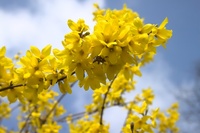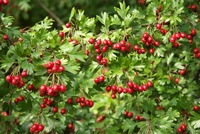
Fruit producer Mansfields has set up bee hotels to encourage pollination and reduce a decline in populations
Fruit grower Mansfields says it has set up over 200 'bee hotels' in a bid to encourage more tree pollination which is "essential" to its top-fruit business.
The producer says the hotels, which will be set up at 20 different farms across Kent, will provide a boost to declining British bee populations. The British Beekeepers Association estimated that the number of bee colonies in Britain fell by 16 per cent in 2012.
"Bees are part of the fine grain of Britain’s local biodiversity and are something to be cherished. As we know, the species is in decline, due to loss of nesting and feeding habits, so anything we can do to assist in conserving the species is essential," said farms' manager Chris Rook.
Rook says that the new bee homes are best suited to solitary bees and will shelter them during the typically cold temperatures experienced around blossom time in the UK.
He added: “This isn’t a short-term solution – these will be a permanent home for a bee’s life-span, which is at least nine months, as it develops from an egg into a full-grown adult. We are also planting a wild flower seed mix for the bees, which is excellent for making a haven for wildlife."
Mansfields has already noticed an increase in bee activity as a result of the 'hotels' and hopes that it can increase the number of hives at its farms to 500 by 2018.
Dartford-based firm Chingford Fruit is one of Mansfields' key customers and horticulture manager Doug Hutton-Squire is delighted with the new accommodation for the species.
He said: “Good pollination is required to set a healthy crop with high seed counts, which improve fruit shape, firmness and eating quality so anything that can be done to help to protect this fascinating species is applauded.”
Operation Bumblebee
Mansfields says that the implementation of several new techniques, in a scheme dubbed 'Operation Bumblebee', will help to address a 70 per cent decline in bumblebees over the last three decades. Currently, three bumblebee species, out of a total of 20, are on the verge of extinction with an additional six species at a low population level.
Rook concluded: "We have developed a series of wildlife corridors and have built beetle banks, seeded with a specific grass mix. Field margins have been enhanced and seeded with both pollen, nectar, butterfly and bee wild flower seed mix.
“Since the start of ‘operation bumblebee’, we have seen an increase in the bee activity, which is fantastic and something we wish to build on.”
The debate over the health of bees has been featured prominently in the world's media lately following the EU's ban of three neonicotinoids.




